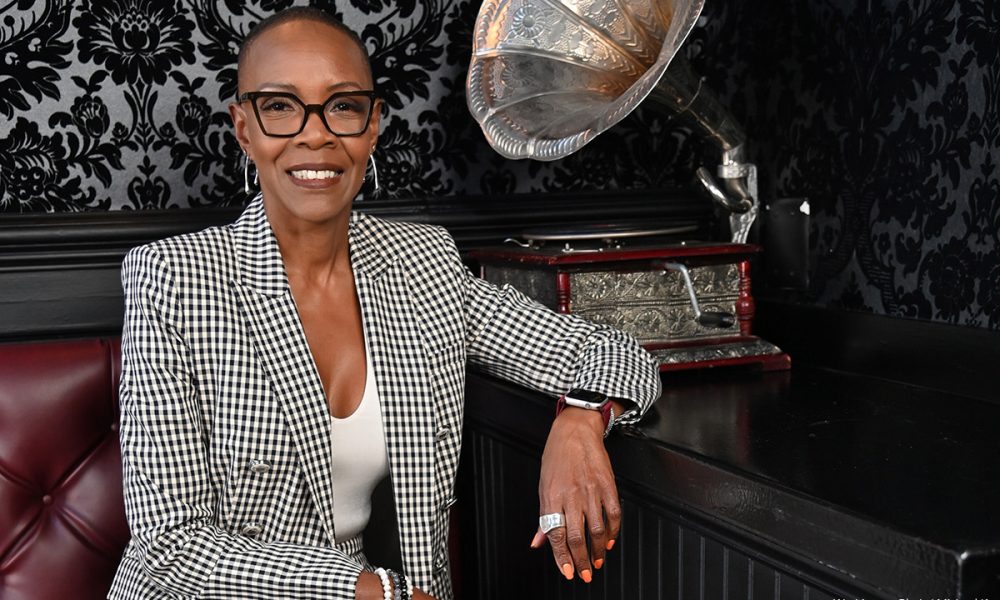Jobs
Two D.C. LGBTQ rights advocates stepping down from jobs

It’s ironic that the city that is home to the federal government gets almost no say in how the federal government is run.
From license plates that display the phrase “No Taxation Without Representation” to countless “51st State” stickers seen everywhere, the residents of Washington are well aware that their vote carries less weight than other Americans.
Despite this, one group in Washington is attempting to expand residents’ electoral power through Initiative 83. The group ‘Yes On 83’ has been the driving force behind the measure. They have put up signs across the city, handed out flyers, and spoken to people about what the initiative would change.
“Initiative 83 is a two-part ballot initiative,” said Porter Bowman, the volunteer communications director for Yes On 83. “It does two things. One, would implement ranked choice voting in primaries and general elections in D.C., as well as let independents vote in the primary of their choosing.”
On Tuesday after the polls closed, the Yes on 83 team gathered at Crush Dance Bar on 14th Street for an election watch party. There, groups of purple wearing volunteers gathered on the dance floor to celebrate their work and watch election results trickle in.
One of those volunteers is Ruby Coleman, the student engagement coordinator for the Yes On 83 campaign and an American University student who was passionate about the measure. She explained this is a win for Washington voters, regardless of how they voted on the measure.
“It will hold our politicians accountable,” Coleman said as her co-volunteers danced behind her. “Ranked choice voting will make it easier to vote out politicians who do not work for us, since they need the 50% threshold, it’ll make it a lot easier for us to vote them out.”
In ranked choice voting, 51% is the golden number. The way ranked choice voting works is voters rank their preferred candidates in order of preference (first, second, third). Then, only the first choices of voters are counted. If a candidate wins more than 50% of the vote they win the race.
If no candidate reaches that 51% threshold, then the person with the least number of votes is eliminated and everyone who voted for the now eliminated candidate has their second option vote counted. This process of eliminating the lowest supported candidate continues until one of the candidates reaches above 50% of the vote.
This in theory encourages voters to research all the potential candidates’ platforms and ideas, as well as provide more balanced voting by eliminating “spoiler” votes where similar candidates split the vote causing neither to win.
In addition to ranked choice voting, Initiative 83 also allows for independents, or those not registered to any party, to vote in Washington’s primary elections. Washington has formerly only allowed registered partisan voters to partake in primary votes.
There are many reasons why residents may not register under a major party. Some people feel party platforms don’t reflect their ideas, others, like journalists and high-level federal workers, may not register to avoid appearing partisan.
At about 10:15 p.m. on Tuesday, the Yes On 83 group celebrated a premature victory. At this point, approximately 55% of Washingtonians’ votes had been counted. The ‘Yes’ vote for Initiative 83 held a strong lead, with 72% in favor, while the ‘No’ vote trailed at less than 30%.
Lisa D. T. Rice, the proposer of the initiative, was beaming on Crush’s stage as she addressed the volunteers on the dance floor.
“After a full, tiring, but momentous day, I’m especially proud and looking over the sea of faces, I know what an amazing team we have here,” Rice said to start her nearly eight-minute-long speech. “As a native Washingtonian woman of persistence, I proposed Initiative 83 here in my hometown to put voters first. I love this city, and I think we deserve a political system where politicians have to work harder to earn our votes.”
Proponents of Initiative 83 have said the ranked choice system will allow for more voices to be heard, including those of the LGBTQ community.
“In ranked choice voting, you have the opportunity to vote based on your values and not necessarily strategically,” Coleman told the Blade. “That means that you can vote for someone who you want to win over someone who you think is going to win.”
“A very easy example of this is if you’re looking at the presidential election and you want to vote third party, but you think the Democratic candidate might win, you can still vote third party first and put the Democratic candidate second,” Coleman continued. “You’re not losing any votes. You’re not wasting your votes. And so that’s the same minority candidates, including LGBTQ candidates. Studies have shown that ranked choice voting elects women, minority candidates, and candidates of color at a higher rate because people are not afraid to vote for them, to put them first.”
Opponents of ranked choice voting have said the process is too complicated and will lead to voter confusion, a longer counting process, and may not reflect the true majority preference.
Despite this opposition, Washington has approved the initiative; 186,277 (or around 72%) of Washington voters said yes to the initiative, while 70,045 (27%) voters said no.
“Ranked choice voting is a proven system to hold politicians accountable to a majority of voters, and letting independents like me, independents like me, vote in these taxpayer funded primaries, is just the right thing to do,” Rice continued in her victory speech. “We built a strong coalition of voters across the district, all wards, backgrounds, races, classes and political ideologies, who realized it’s time to make politicians work harder for us. Thank you to those who believed in us and joined us on this journey.”










